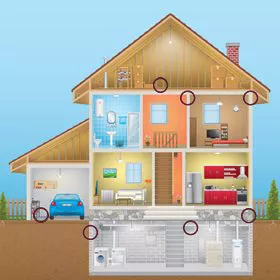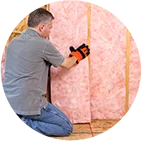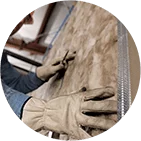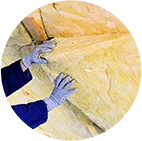Ever wondered if you have enough wall insulation in your home? After all, next to attic insulation, it’s the most important space to ensure you’ve got sufficiently covered. Insulation helps improve the thermal envelope of your home reduce sound pollution, and it’s necessary for keeping your home at maximum energy-efficient levels. But how much is enough?
How Much Insulation Do Your Walls Need?
There really is no clear answer for “enough,” though there is for too much or too little. Basically the goal is to adequately insulate according to the needs of your home. Lots of factors can influence this, such as:
- The size of your home
- The number of occupants present
- How many floors you have
- The type of insulation used
- The age of your current insulation
The list could really go on. In short, the odds are in favor of always adding insulation to your home. Even a newer home can see a dramatic difference in adding new insulation to replace or improve old insulation. To get an idea of how much insulation you need, you first need to find two all-important pieces of information: How much do you already have, and where is it located?
The best way to deduce these is to hire a professional. An insulation specialist can quickly locate the insulation in your walls and let you know how much is there. Afterward, discussing and planning for additional material is simple!
Should You Add More Insulation to Your Walls?
Professionals should handle installation, but there is a quick way to check yourself. Remove the light switch plate or electrical outlet plate and look to the side of the box. To the side of the box, the wall will appear either empty or you’ll see insulation. Other signs you may need more insulation in the walls include:
- Energy bills that are higher with no increase in usage
- Drafts and uneven temperatures from room to room
- Outside noises that seem louder than usual or louder than they should be
- Old age (if your home was built in the 1970s or earlier, there’s a higher chance you don’t have enough insulation to meet today’s standards)
You may also need interior wall insulation. For many homes, interior wall insulation does isn’t necessary for energy efficiency. The biggest perk of interior wall insulation is primarily helping provide soundproofing between different rooms and levels. Interior wall insulation is recommended for any home, especially those with thin walls and for condos where there isn’t as much privacy. From batt insulation to loose-fill cellulose, there are many different choices for insulating walls.
Interested in learning more about adding insulation to your home and how it can help save you tons in energy costs? Contact the certified experts at OJ Insulation, serving the San Diego and Los Angeles areas!









